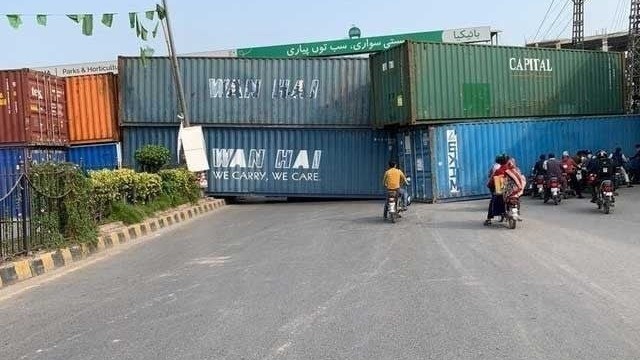Introduction:
In Pakistan, mental health remains a silent struggle for many. Despite the rising awareness of mental health issues worldwide, discussing these concerns openly in our society is still shrouded in stigma and misunderstanding. This silence around mental health has deep and far-reaching consequences, often leaving those who suffer feeling isolated and unsupported. It’s time we address this critical issue with the seriousness it deserves and take collective responsibility for fostering a culture of empathy, understanding, and support for mental well-being in Pakistan.
Personal Stories and Experiences:
Meet Ayesha, a young woman from Lahore who has battled depression for years. Despite her efforts to manage her mental health, she has often been met with skepticism and judgment from those around her. “Just pray more,” she’s been told, as if her faith were lacking. This reaction is not unique to Ayesha; it reflects a broader societal misunderstanding of mental health issues. For many Pakistanis like Ayesha, acknowledging a mental health struggle is seen as a weakness or a failure to uphold societal and familial expectations.
Then there’s Ahmed, a middle-aged man from Karachi who lost his job during the pandemic. Struggling with anxiety and the stress of unemployment, Ahmed found himself slipping into depression. Yet, when he tried to talk about his feelings with his family, he was met with dismissive comments like “Be a man” or “Don’t be so weak.” Ahmed’s story is one of many that illustrate the pervasive stigma that surrounds mental health in Pakistan.
These stories are not just isolated incidents; they are a reflection of the widespread stigma and ignorance that prevent people from seeking help and speaking openly about their struggles. They highlight the urgent need for a societal shift in how we view and treat mental health.
The Impact of Stigma:
The stigma associated with mental health issues in Pakistan has a profound impact on individuals and communities. It discourages people from seeking the help they need, exacerbating their struggles and leading to a cycle of suffering in silence. This stigma is rooted in cultural and religious misconceptions that view mental health issues as a sign of weakness, a lack of faith, or even as a punishment for past sins.
This mentality not only harms those who are suffering but also perpetuates a culture of silence and denial. Families often hide mental health issues out of fear of social ostracism, further isolating their loved ones and denying them the support they need. As a result, many people suffer in silence, unable to access the resources and care that could help them heal and thrive.
The Role of Society:
As a society, we have a critical role to play in breaking this cycle of stigma and silence. It starts with understanding that mental health is just as important as physical health and that seeking help for mental health issues is a sign of strength, not weakness.
Community support is essential for those struggling with mental health challenges. Friends, family, and colleagues can make a significant difference by offering a listening ear, expressing empathy, and encouraging professional help when needed. It’s also crucial for influential figures in our society, such as religious leaders, educators, and media personalities, to use their platforms to promote mental health awareness and reduce stigma.
By openly discussing mental health and challenging misconceptions, we can create a more supportive environment where individuals feel safe to share their struggles and seek help without fear of judgment.
Need for Better Resources and Policies:
While societal attitudes play a crucial role in addressing mental health issues, there is also an urgent need for better resources and policies to support those in need. Pakistan faces a severe shortage of mental health professionals and facilities, making it difficult for people to access the care they need. This lack of resources is compounded by inadequate funding and limited public awareness about available services.
To address this gap, the government must prioritize mental health in its healthcare policies and allocate more funds for mental health services. Schools and workplaces should also be encouraged to integrate mental health education and support into their programs, promoting a culture of awareness and understanding from a young age.
A Call to Action:
As Pakistanis, we must take collective responsibility for changing the way we view and talk about mental health. It starts with educating ourselves and others about mental health, challenging stigmatizing attitudes, and advocating for better mental health policies and resources.
Here are a few practical steps we can take:
- Educate and Raise Awareness: Learn about mental health issues and share this knowledge with your family, friends, and community. Encourage open conversations about mental health and challenge stigmatizing language and attitudes.
- Support Those in Need: If you know someone struggling with their mental health, offer your support and understanding. Encourage them to reach out to mental health professionals and remind them that they are not alone in their journey.
- Advocate for Change: Use your voice to advocate for better mental health policies and resources in your community and at the national level. Support organizations and initiatives that are working to improve mental health services and awareness in Pakistan.
Summing Up:
Mental health is a shared responsibility that affects us all. By breaking the silence and taking collective action, we can create a more compassionate and supportive society where everyone feels safe to speak openly about their struggles and seek the help they need. Let’s commit to making mental health a priority in Pakistan and work together to build a brighter, healthier future for all.
I’m Available
If you or someone you know is facing the silent struggle of mental health challenges, please know that you are not alone. I am here to offer support and understanding, and I genuinely care about your well-being. If this article has resonated with you, or if you have been searching for someone to talk to, reach out to me. I would be truly grateful and honored to assist in any way I can. Together, we can break through the barriers of stigma and misunderstanding, and work towards healing and growth. Your struggles are valid, and seeking help is a courageous step towards a brighter, more hopeful future. Please don’t hesitate to contact me. I am here to listen, support, and stand by you every step of the way.



